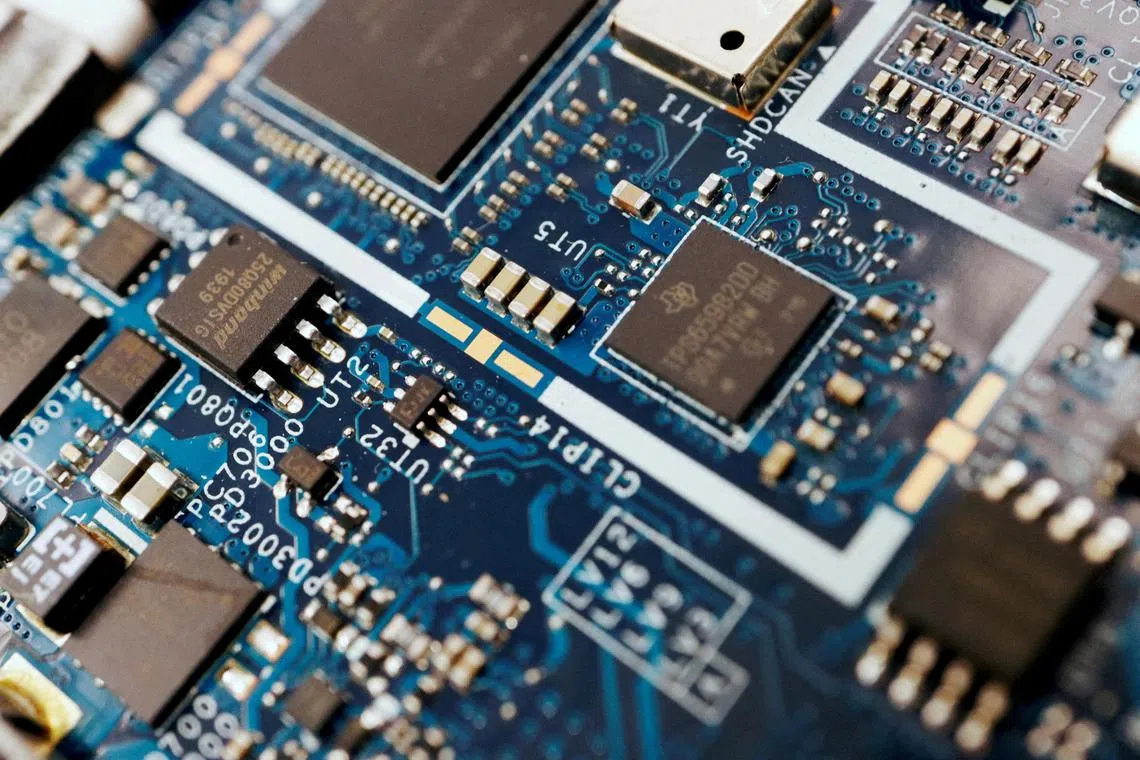China imports of chipmaking gear drop to lowest level since mid-2020
Sign up now: Get ST's newsletters delivered to your inbox

Chinese demand for chips has been weak this year due to factors including supply chain disruptions and a slowing domestic economy.
PHOTO: REUTERS
Singapore – China’s purchases of machines to make computer chips contracted in November to their lowest level in more than two years, hammered by cratering electronics demand and new US export restrictions that are limiting the ability of Chinese firms to buy the most advanced equipment.
Chinese companies imported US$2.3 billion (S$3.1 billion) worth of machines used in semiconductor manufacturing in November, down by more than 40 per cent from a year earlier to the lowest level since May 2020, according to Customs data released on Wednesday.
Imports from the six major supplying nations, including the United States, Japan and the Netherlands, all fell at a double-digit pace in the month, even before some of those nations agreed to join the US in further limiting shipments of the most advanced gear to China.
Imports of computer chips also fell as makers of semiconductors for smartphones and PCs struggle with plummeting demand for their products less than a year after being unable to produce enough to meet orders.
The US sanctions announced in October
The US is negotiating with the Dutch and Japanese governments to convince them to join its unilateral sanctions, with people with knowledge of the talks telling Bloomberg that they are likely to adopt at least some of the US’ sweeping measures.
The three-country alliance would represent a near-total blockade of China’s ability to buy the equipment necessary to make leading-edge chips.
The US rules restricted the supply from American suppliers Applied Materials, Lam Research and KLA. Japan’s Tokyo Electron and Dutch lithography specialist ASML Holding are the two other critical suppliers that the US needs to make the sanctions effective, so if their governments also adopt the curbs, it would be a significant victory in the US attempt to cripple the development of China’s semiconductor industry.
China has filed a complaint with the World Trade Organisation to try to overturn the export controls,
The trade data also showed that China’s purchases of computer chips were down by around 26 per cent in November for a 2 per cent decline in the first 11 months of the year. Chinese demand for chips has been weak this year due to supply chain disruptions, a slowing domestic economy and falling demand globally for products such as smartphones.
Micron Technology


